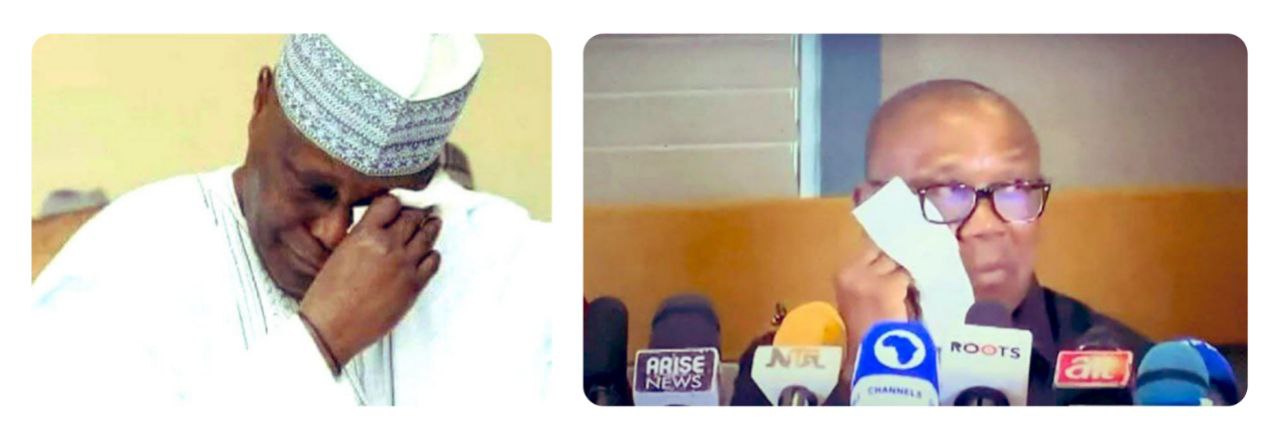By Osigwe Omo-Ikirodah
The reappearance of ‘The Wailers(Pro Max)’ in the midst of Tinubu’s presidential victory signifies a renewed wave of opposition following the outcome of the last presidential election. This group, known for their vocal criticism of government policies, initially emerged during President Buhari’s administration, and it seems they have regrouped, even more fervently, after a period of relative silence.
In the wake of the election that saw Bola Ahmed Tinubu emerge victorious as the President of Nigeria, ‘The Wailers(Pro Max)’ have found fresh motivation. Their name derives from their penchant for passionately voicing their displeasure with government decisions and actions. However, their critiques often lean toward the emotional rather than the analytical, as their primary intent seems to be to sway public opinion with their sympathetically biased narratives.
They often present a rosy picture, as if achieving greatness in Nigeria requires no effort, simply because the country is naturally endowed with abundant resources. Ironically, this newly resurfaced group of ‘The Wailers’ seems even more unwavering in their negative stance than their predecessors, ushering in a phase we might dub ‘The Wailers Pro Max.’
These individuals and groups exhibit a level of devotion that often transcends logic, characterizing those who support the government as irrational or self-serving. They continue to drive a narrative that paints Nigeria as a sinking ship, seemingly unaware that, at 63 years old, the nation has made considerable progress.
They create an impression that our country is in a dire state because we have not ousted corrupt leaders. Yet, it’s puzzling that many of them have never actively engaged in the electoral process. When we draw a comparison between our nation at 63 years and countries like the United Kingdom, which boasts a history spanning over 300 years, or the United States, with over 240 years of existence, they dismiss such analogies.
Nonetheless, it’s pertinent to prompt them to contemplate the challenges these countries confronted during comparable phases in their histories, even when they had considerably more years under their belts. Issues such as racism and the slave trade were significant facets of their histories.
Even more puzzling is their reluctance to scrutinize the role played by their local leaders, including governors, legislators, and local government council chairmen, in the country’s development. These individuals wield significant influence but somehow manage to evade the close scrutiny that ‘The Wailers’ reserve for the federal government.
Equally concerning is their oversight when it comes to inquiring how traditional leaders, who receive government allocations for community improvement, utilize these funds. Instead, they express admiration for these traditional rulers while directing their frustrations toward the president, whom they perceive as the harbinger of national failure.
Additionally, they proudly consider their local lawmakers as friends, but in the same breath, they lay blame at the doorstep of the federal government. Paradoxically, these local representatives often fall short in truly representing the interests of their constituents.
This faction’s reluctance to invest in the nation and their preference for imported goods over ‘Made in Nigeria’ products is baffling. They lament the challenges posed by fluctuating exchange rates and the general cost of living while perpetually forecasting doom for the country.
As today’s judgment is mere hours away at the Supreme Court, ‘The Wailers’ have already detected a looming sense of defeat, raising questions about the haste of the judgment, in their own words.
This impending verdict marks the inception of another four years of melancholic lamentation. The worrisome aspect lies in their capacity to sway others with their emotional narratives.
In the face of ‘The Wailers(Pro Max)’ comeback and fervent protest, the nation finds itself at a crossroads, with the Supreme Court’s decision poised to usher in a new chapter in Nigeria’s political landscape.
Osigwe Omo-Ikirodah is the Chairman and CEO of Bush Radio Academy.
Source iReporteronline.












No comments:
Post a Comment